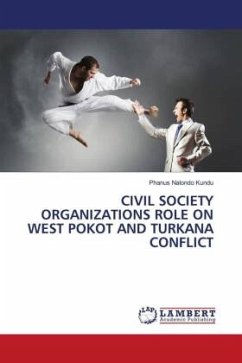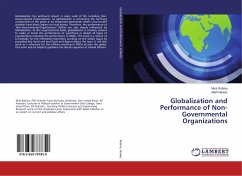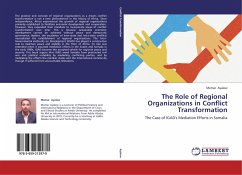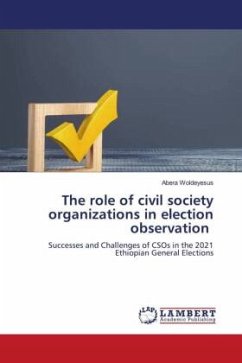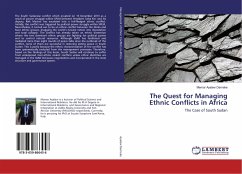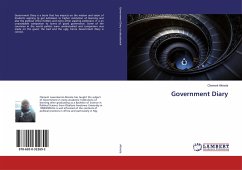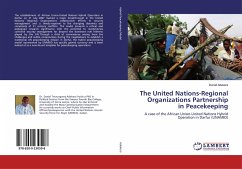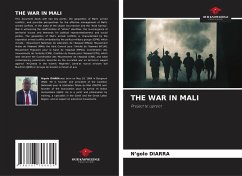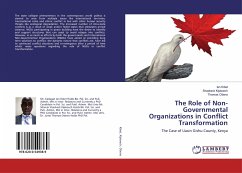
The Role of Non-Governmental Organizations in Conflict Transformation
The Case of Uasin Gishu County, Kenya
Versandkostenfrei!
Versandfertig in 6-10 Tagen
47,99 €
inkl. MwSt.

PAYBACK Punkte
24 °P sammeln!
The state collapse phenomenon in the contemporary world politics is viewed to arise from multiple issues like international terrorism, transnational crime and ethnic conflict in line with other human security threats like ecological degradation. The increased number of intra-state conflicts is as a result of weak and/or failed states that stimulates armed violence. NGOs participating in peace building have the desire to identify and support structures that can assist to avoid relapse into conflicts. However, in as much as efforts by both the governments and International Non-Governmental Organ...
The state collapse phenomenon in the contemporary world politics is viewed to arise from multiple issues like international terrorism, transnational crime and ethnic conflict in line with other human security threats like ecological degradation. The increased number of intra-state conflicts is as a result of weak and/or failed states that stimulates armed violence. NGOs participating in peace building have the desire to identify and support structures that can assist to avoid relapse into conflicts. However, in as much as efforts by both the governments and International Non-Governmental Organizations (INGOs) have aimed at providing long term solutions to conflict, the dynamic nature that conflicts are, have led to continued conflict situations and re-emergence after a period of time which raises questions regarding the role of NGOs in conflict transformation.



